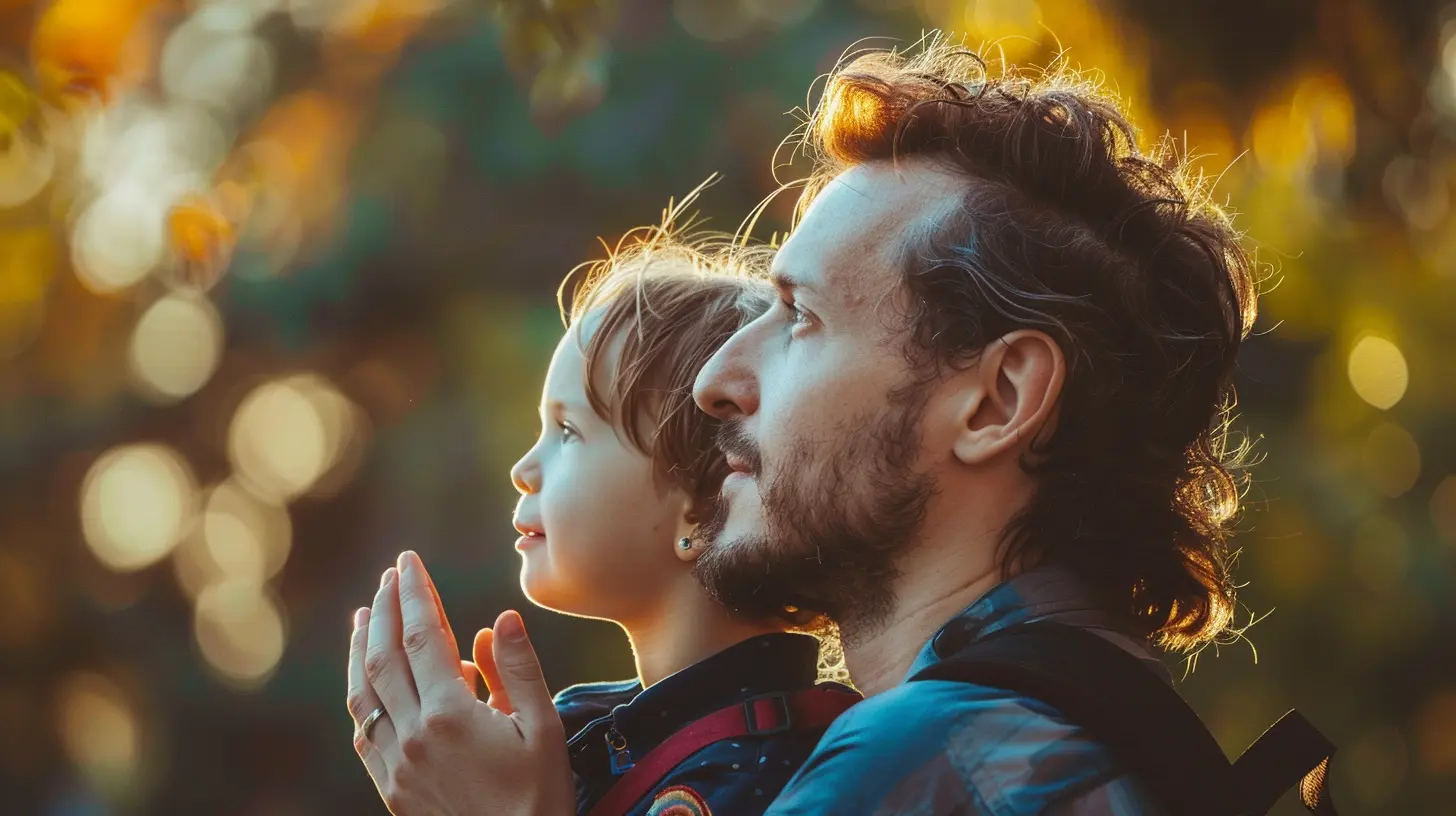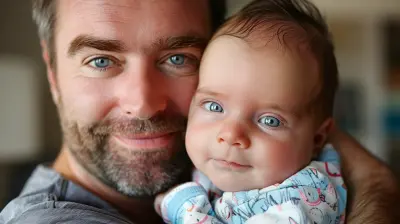23 March 2025
As parents, we are our children's first and most influential teachers. Whether we realize it or not, our kids are constantly watching, learning, and imitating our behavior. From the way we handle stress to how we treat others, every action we take serves as a model for how they should navigate life.
But let’s be real—being a positive role model 24/7 is no easy feat. Life throws curveballs, and there are moments when frustration gets the best of us. However, consistently demonstrating positive behavior is one of the most powerful ways to shape your child’s character and values.
So, how do you model positive behavior for your kids in a way that sticks? Let’s dive in. 
1. Be Mindful of Your Words and Actions
Kids have an uncanny ability to pick up on everything, even when you think they’re not paying attention. Ever caught your child repeating something you never meant for them to hear? That’s because they absorb what’s around them like little sponges.If you want your child to be kind, respectful, and patient, you must embody those traits yourself. That means choosing your words carefully, controlling your emotions, and demonstrating self-discipline.
- Speak kindly, even when frustrated.
- Show patience in difficult situations.
- Apologize and take responsibility when you mess up.
Your kids will mirror what you do far more than what you say. 
2. Practice What You Preach
Telling your child to do one thing and then doing the complete opposite sends mixed signals. Imagine reprimanding your child for yelling, only to raise your own voice the next minute. That contradiction can be confusing and may lead them to disregard your guidance.Instead, align your actions with your words. If you emphasize the importance of honesty, always be truthful yourself. If you want them to respect others, let them see you treating people with kindness and respect. Lead by example, and they'll follow suit. 
3. Show Respect and Empathy
Teaching respect and empathy isn’t just about enforcing good manners—it’s about living them. The way you interact with your children, spouse, family, and even strangers will influence how your kids behave in social situations.- Listen attentively when your child speaks.
- Speak respectfully, even when you disagree.
- Show compassion toward others, whether it's helping a friend or comforting a family member.
When kids witness and experience empathy firsthand, they’ll naturally develop it themselves. 
4. Handle Stress and Conflict Calmly
Life is full of stress, and disagreements are inevitable. How you manage these moments will shape how your child handles their own frustrations and conflicts.If you explode in anger during a tough situation, your child might think that’s an acceptable response when things don’t go their way. Instead, model healthy coping mechanisms like:
- Taking deep breaths before reacting.
- Walking away to cool off before discussing an issue.
- Expressing emotions calmly and respectfully.
Showing your child that it's okay to feel frustrated but that there are healthy ways to handle it sets them up for success in managing their emotions.
5. Demonstrate Gratitude and Positivity
In a world that can sometimes focus too much on negativity, it’s important to model gratitude and a positive outlook. This doesn’t mean ignoring hardships—it means teaching kids to find the silver lining.- Express gratitude for the little things in daily life.
- Point out positive aspects of difficult situations.
- Avoid constant complaining, as kids will mimic that attitude.
By fostering a mindset of gratitude and positivity, you equip your child with tools for happiness and resilience.
6. Be Accountable and Admit Mistakes
No one is perfect, and that includes parents. The good news? Admitting mistakes and taking responsibility for them is one of the best things you can do for your child.Instead of brushing mistakes under the rug, show them how to own up to errors, apologize sincerely, and make things right. This teaches kids that mistakes are a natural part of life and that accountability matters more than perfection.
- Say, "I'm sorry. I shouldn't have raised my voice."
- Admit when you’ve made a bad decision and explain how you’ll fix it.
Teaching kids that it’s okay to mess up—as long as they take responsibility and learn from it—helps them develop integrity.
7. Encourage a Love for Learning and Growth
Children are naturally curious, and modeling a desire for learning and self-improvement helps nurture that curiosity. Show them that growth is a lifelong journey by:- Reading regularly and discussing books.
- Trying new things and embracing challenges.
- Admitting when you don’t know something and making an effort to learn.
When kids see that learning isn’t just something they have to do at school but an exciting part of life, they’ll be more inclined to develop a growth mindset.
8. Show Kindness and Generosity
Small acts of kindness go a long way. Whether it’s holding the door for someone, volunteering, or simply offering words of encouragement, every act of kindness makes an impression.- Encourage sharing and helping others.
- Show random acts of kindness in your daily life.
- Celebrate their own acts of kindness, reinforcing that generosity matters.
Kids who witness generosity in action will naturally become more compassionate and giving individuals.
9. Maintain Healthy Habits
Children learn from what they see, not just what they hear. If you want your kids to adopt a healthy lifestyle, you need to walk the walk.- Eat nutritious foods and make balanced choices.
- Exercise regularly and make movement a joyful part of life.
- Get enough sleep and prioritize self-care.
By prioritizing your own health, you instill the importance of self-care and well-being in your child’s life as well.
10. Spend Quality Time Together
One of the most powerful ways to model positive behavior is simply by being present. Kids feel valued and loved when their parents make an effort to connect with them.- Have meals together without distractions.
- Play, talk, and engage in their interests.
- Show them that their thoughts and feelings matter.
When children feel secure in their relationship with you, they are more likely to develop confidence, empathy, and emotional intelligence.
Conclusion
Modeling positive behavior for your kids isn't about striving for perfection—it's about being intentional with your actions. Every choice you make, from how you handle stress to the way you treat others, influences the kind of person your child becomes.By demonstrating kindness, empathy, gratitude, and accountability, you provide a blueprint for your child to develop these same values. So, take a moment to reflect on your own behavior, and remember—your children are always watching, learning, and growing from the example you set.
The best way to raise good humans is to be one yourself.





Gunner Hurst
Great tips! Positive modeling truly makes a difference.
April 1, 2025 at 3:00 PM